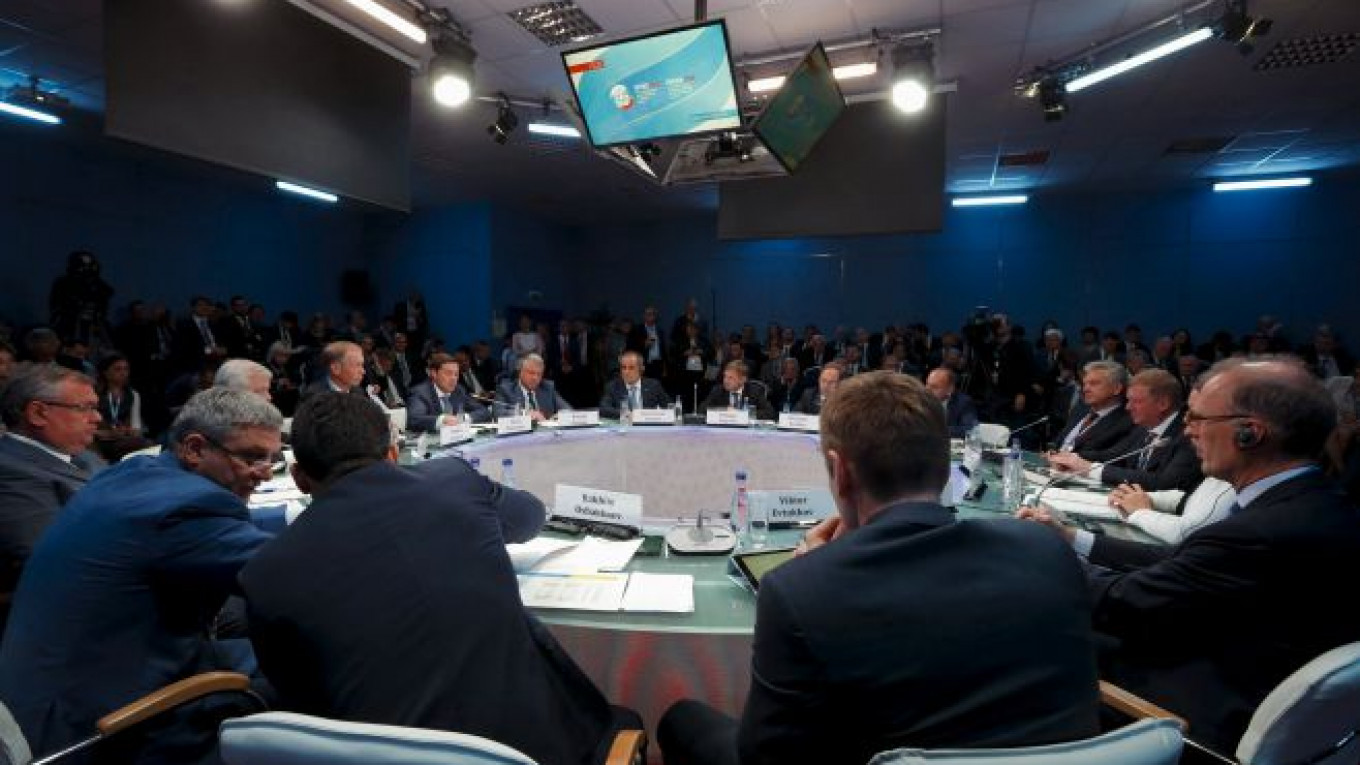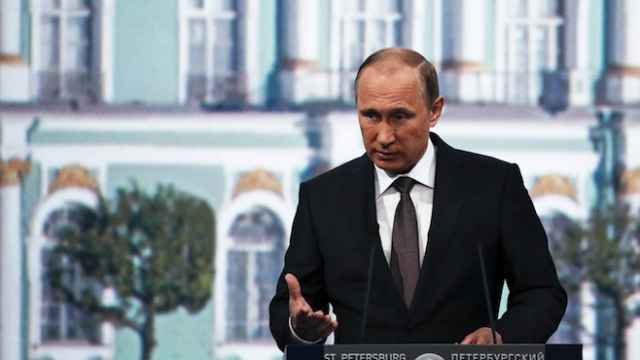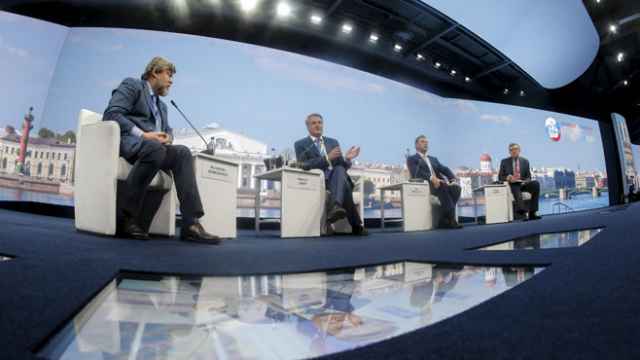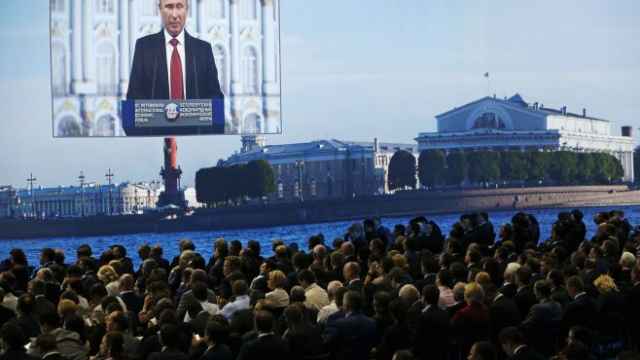The future of the Russian economy dominated discussions at this week's St. Petersburg International Economic Forum, with politicians and economists divided on whether the current crisis will prove a trigger for development or the beginning of a long decline.
The three-day forum, Russia's analogue to the Davos economic forum in Switzerland, is Russia's premier venue for discussing the issues facing the Russian and global economy. Despite political tensions with the West over Russia's actions in Ukraine, the forum was attended by more than 800 foreign businessmen representing 450 corporations.
Russian economic growth began to slump as early as 2013, but the economy was plunged into a full-blown crisis last year by a global drop in the price of oil — Russia's chief export — and EU and U.S. sanctions on Moscow for its role in the Ukraine crisis.
The Moscow Times picked out five of the most striking statements made by the financial and political heavyweights who assembled for this year's forum.
1) German Gref, head of Sberbank
“The difficult economic situation we are in now is not over. It will continue throughout this year and part of next year. … The acute phase of the crisis has passed, but that does not mean we have passed through the crisis itself. Defaults and bankruptcies are still ahead," Gref said at the forum, news agency RIA Novosti reported.
2) Alexei Kudrin, former finance minister
“It is already practically the case that from 2012 to 2018, the time of [President] Vladimir Putin's last term, the average growth [of the Russian economy] will be 1.4 percent per year. This means that by 2020, Russia's share in the global economy will stand at 2.7 percent. This is the very lowest index in modern history," Kudrin was quoted as saying by news agency Interfax.
3) Anton Siluanov, finance minister
“Our financial sector, I can see it in government bonds, is growing, growing by leaps and bounds. Look, our government bonds are being purchased, including by foreigners, with a significant excess of demand over supply — sometimes three or six times more in a session," Siluanov was quoted as saying by the Prime news agency.
4) Arkady Dvorkovich, deputy prime minister
“When there are no more sanctions or embargoes, Russia will be seen not only as an empire that supplies oil and gas, but also as a powerful producer of agricultural products," Dvorkovich said, the TASS news agency reported.
5) Pavel Teplukhin, CEO of Deutsche Bank in Russia
“We have failed to implement import substitution, which could have restored growth in consumption. We have not even learned yet how to produce basic food products in the right quantities. And this is a simple and short investment cycle," TASS quoted Teplukhin as saying.
Contact the author at [email protected]
A Message from The Moscow Times:
Dear readers,
We are facing unprecedented challenges. Russia's Prosecutor General's Office has designated The Moscow Times as an "undesirable" organization, criminalizing our work and putting our staff at risk of prosecution. This follows our earlier unjust labeling as a "foreign agent."
These actions are direct attempts to silence independent journalism in Russia. The authorities claim our work "discredits the decisions of the Russian leadership." We see things differently: we strive to provide accurate, unbiased reporting on Russia.
We, the journalists of The Moscow Times, refuse to be silenced. But to continue our work, we need your help.
Your support, no matter how small, makes a world of difference. If you can, please support us monthly starting from just $2. It's quick to set up, and every contribution makes a significant impact.
By supporting The Moscow Times, you're defending open, independent journalism in the face of repression. Thank you for standing with us.
Remind me later.






